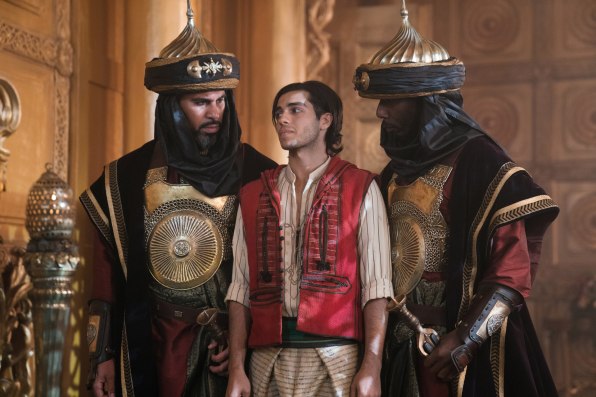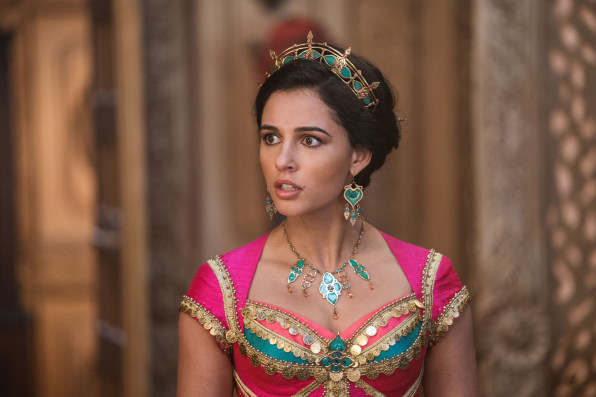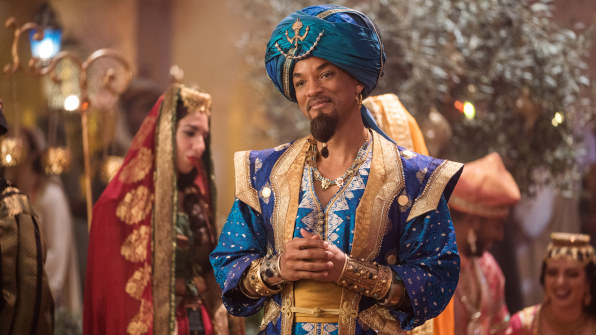The Aladdin remake still can’t get Arab culture right
Guy Ritchie’s live-action “Aladdin” goes to great lengths not to insult the culture it’s depicting. The result is a bland missed opportunity.

It comes as no surprise that Aladdin is among the string of live-action updates that Disney is making to its animated films. The original 1992 movie grossed $500 million around the world and was a key part of the Disney renaissance of the 1990s, released between Beauty and the Beast and The Lion King. Despite its colossal success, the film did come under fire for its negative stereotypes of the Arab world and its choice to cast not a single actor of Middle Eastern descent for the lead voice roles. The remake, then, offers a chance for Disney to correct some of those past mistakes and present an Aladdin for this era—in addition, of course, to reeling in a new generation of young fans.
So what were some of those creative choices from the original Aladdin that come off as cringeworthy today? The first—and most controversial—came right in the opening credits. “Arabian Nights” described the fictional city of Agrabah as a place “where they cut off your ear when they don’t like your face/It’s barbaric, but hey! It’s home.” After the American-Arab Anti-Discrimination Committee decried the lyrics as racist, they were changed to “where it’s flat and immense and the heat is intense/It’s barbaric, but hey! It’s home” for the home video release. Still, when Jasmine takes food from a market stall to feed some hungry children, a merchant grabs her by the wrist and threatens to cut off her hand for stealing. The film also makes a stark delineation between characters with thicker accents, darker skin tones, and beards (villains or garden-variety, low-born boors) and those with good ole American accents and more traditional European features (the protagonists).

New Aladdin is almost a scene-for-scene copy of the original. Ritchie’s vision, it appears, was to merely re-create the animated world from 1992 via modern technology, without reinterpreting the story in larger ways. Sure, background characters can be heard saying “Yallah” (Arabic for “come on,” “come here,” or “hurry”), and the guards chasing Aladdin (Mena Massoud) speak Arabic to each other. But this injection of language plays as mere filler. Instead of clichéd, surface-deep scenes of bustling souks and a parade of elaborate headdresses, I was hoping for more intimate scenes that showed everyday life in the Middle East—a meal inside a family home, for instance. Even the souk merchants largely function as set dressing whose interaction with Jasmine and Aladdin is minimal. It’s as if Disney was so afraid of perpetuating the same cultural stereotypes it has been chastised for in the past that it opted for bland safety over vivid characterization. There’s very little on screen, beyond the lush color of the elaborate sets and costumes, that gives us the sense that we’ve been transported to an Arabian kingdom. Call it pseudo-Arabia.

All of these choices are welcome updates—and even led me to hope that the movie would end not with wedding vows but with the gates shutting beyond Aladdin and Abu as they leave the palace for good and Jasmine forges ahead as an aspiring leader. But of course not. She and Aladdin get married. Even allowing that we’re fully entrenched in the Disneyverse here, the allegiance to the marriage plot still felt disappointingly regressive to me, inconsistent with the independent heroine with more on her mind than Prince Charming. Not that she can’t be a powerful ruler and marry a swell guy, but still, I would have been much more satisfied seeing Jasmine and Aladdin live happily ever after as friends.

Twenty-seven years ago, Aladdin famously promised Jasmine “a whole new world,” a place that was “shining, shimmering, splendid.” The remake delivers on the latter. But “a new fantastic point of view?” Maybe next time.
https://www.fastcompany.com/90354146/the-aladdin-remake-still-cant-get-arab-culture-right
2019-05-24 15:30:00Z
52780302032303
Bagikan Berita Ini














0 Response to "The Aladdin remake still can't get Arab culture right - Fast Company"
Post a Comment